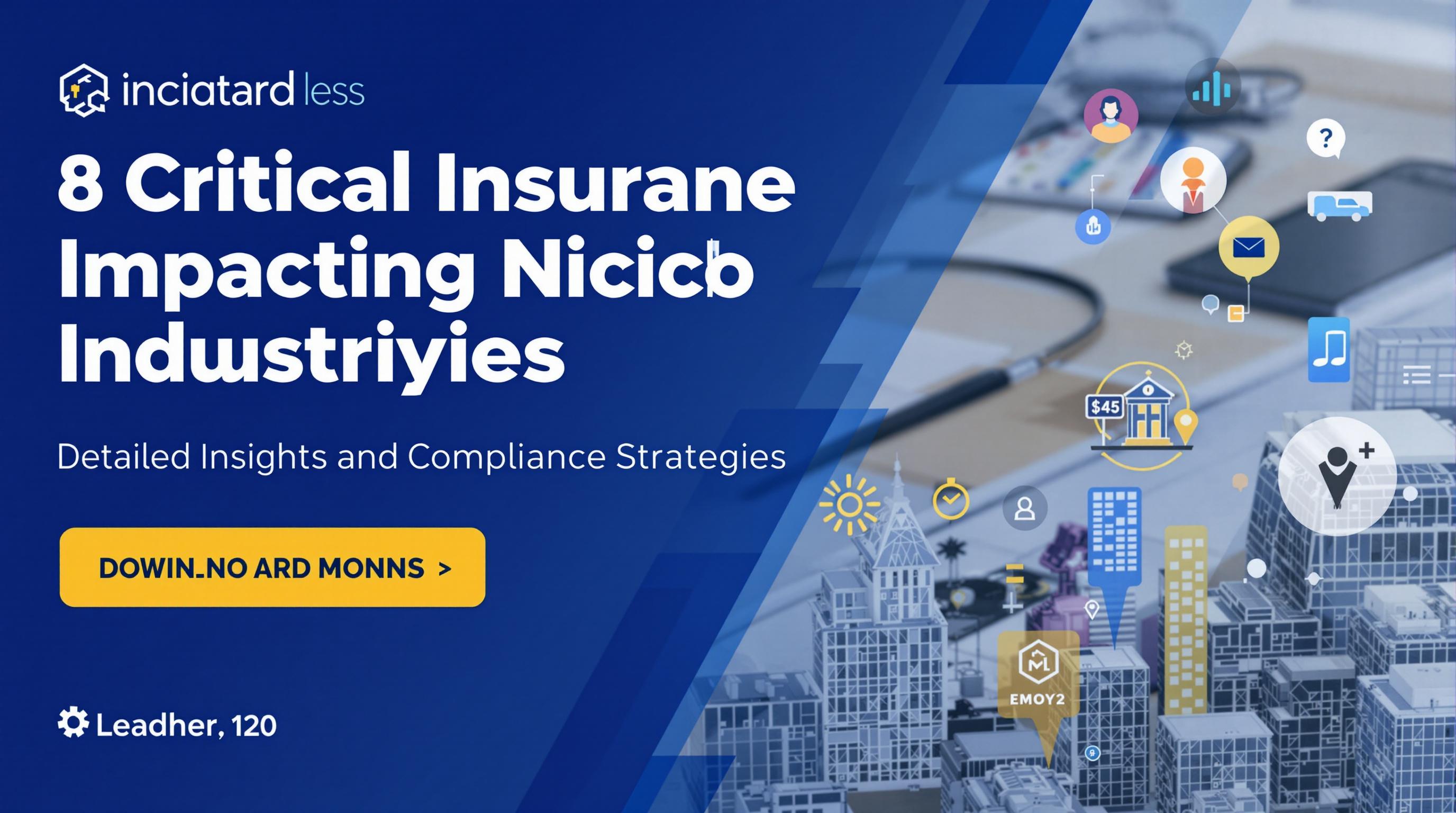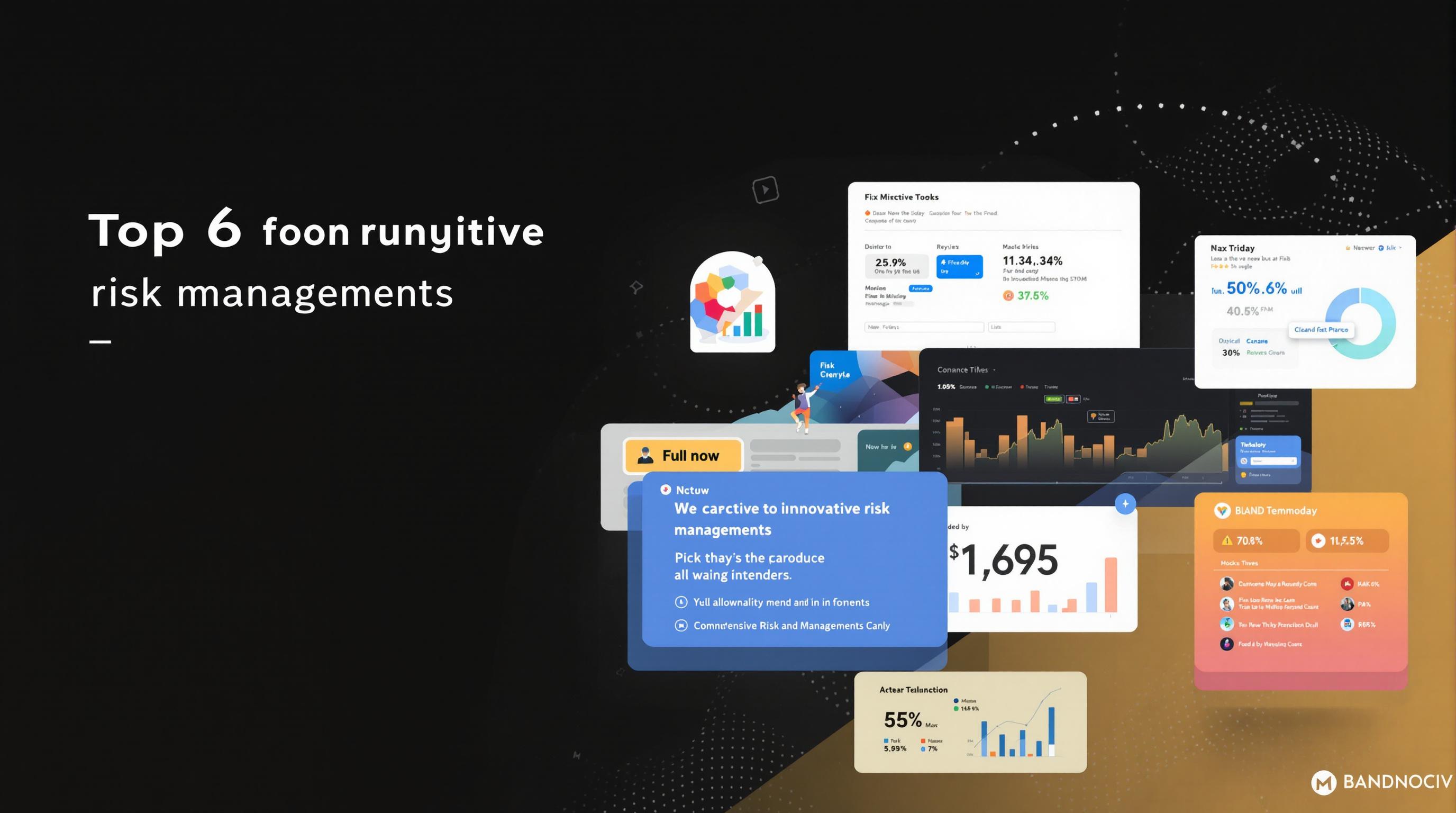Related Articles
- Top 5 Game-Changing Copyright Management Apps from 2019 to 2024 for Modern Creators
- Top 5 Game-Changing Copyright Management Apps Released Since 2019 for Fast, Foolproof Filings
- How Traditional Storytelling Shapes Community Healing in Conflict Settlement Practices Worldwide
- The Role of Ancient Storytelling Traditions in Shaping Modern Conflict Settlement Practices
- The Quiet Shift: How Climate Change Is Secretly Reshaping Liability Standards in Insurance Policies
- The Unseen Impact of Climate Change on Rural Insurance Mandates and Local Risk Assessments
9 Lesser-Known Insurance Mandates for Niche Industries That Could Impact Your Compliance Strategy
9 Lesser-Known Insurance Mandates for Niche Industries That Could Impact Your Compliance Strategy
9 Lesser-Known Insurance Mandates for Niche Industries That Could Impact Your Compliance Strategy
In today’s complex regulatory environment, businesses in niche industries often face unique insurance mandates that are not widely publicized but critical to compliance. Overlooking these mandates can result in hefty fines, operational disruptions, or even legal action. This article explores nine lesser-known insurance requirements across specialized sectors that could shape your compliance strategy and protect your organization’s future.
Understanding the nuances of industry-specific insurance obligations is essential as they often differ significantly from mainstream policies. From environmental liability in unconventional arenas to tailored workers’ compensation rules, these mandates demonstrate how varied compliance landscapes can be. Staying informed and proactive ensures companies avoid pitfalls while gaining insights into risk management best practices.
Each section below highlights one specialized insurance mandate, outlining its implications, relevant industries, and compliance nuances. Identifying which apply to your organization may require consultation with insurance experts or legal counsel versed in niche markets, but awareness is always the first crucial step.
1. Environmental Liability Insurance for Renewable Energy Projects
Renewable energy projects such as wind farms and solar installations are increasingly subject to environmental liability insurance mandates. These require coverage for potential damages related to environmental harm, including soil contamination and wildlife disruption. Despite the green nature of these projects, regulators insist on insurance as a safeguard against unforeseen ecological impacts.
This mandate often applies in regions with stringent environmental regulations and to projects involving land disturbance or proximity to protected habitats. For instance, the U.S. Environmental Protection Agency (EPA) encourages state-level programs that require renewable energy developers to carry specific liability insurance to cover cleanup costs and potential third-party claims.
Compliance planning must include assessing environmental risks throughout the project lifecycle and working with insurers to secure appropriate policies. Failure to comply can delay project permits or result in fines, underscoring the need for meticulous risk evaluation for renewable energy entrepreneurs.
2. Professional Liability Insurance in Cybersecurity Consulting
With the escalating threat landscape, cybersecurity consulting firms face growing demands to hold professional liability insurance, also known as errors and omissions (E&O) insurance. This protects consultants against claims arising from negligence or failure to perform professional duties adequately.
Because cybersecurity breaches can cause significant financial and reputational damage, clients increasingly require proof of coverage before engaging consultants. Certain states and jurisdictions have begun mandating E&O insurance for cybersecurity advisors to shield clients and uphold industry credibility.
Businesses in this niche must evaluate their exposure to litigation risks stemming from advice given or solutions implemented. Tailored policies that specifically cover data breaches, third-party claims, and reputational harm should be prioritized in compliance strategies.
3. Workers’ Compensation for Commercial Drone Operators
Commercial drone operators represent a niche where traditional workers’ compensation requirements have evolved. Given the unique hazards associated with UAVs (unmanned aerial vehicles), some states now require drone operators, including contractors and freelance pilots, to maintain workers’ compensation insurance explicitly covering drone-related injuries.
This mandate helps protect operators from gaps in coverage due to the atypical nature of their work environment and risk profile. It can also impact companies employing drone services, as they may bear responsibility for insuring contracted pilots under certain conditions.
Ensuring proper classification and coverage under workers’ compensation plans is critical to avoid disputes and penalties. Employers should consult state labor departments and insurance providers specializing in aviation-related risks to maintain compliance.
4. Product Liability Insurance for 3D Printing Businesses
Businesses specializing in 3D printing, especially those producing custom parts or medical devices, face specialized product liability insurance requirements. This insurance protects against claims related to defects in design, manufacturing, or labeling that could cause harm or property damage.
Given the innovative but still relatively unregulated nature of the 3D printing industry, these mandates vary widely by jurisdiction and product type. Medical and aerospace applications typically have the most stringent requirements due to the potential severity of failures.
Compliance involves understanding the specific applications of printed products and the evolving regulatory landscape. Partnering with insurers experienced in emerging technologies can facilitate appropriate coverage to mitigate risks.
5. Liquor Liability Insurance for Event Catering Services
Event catering companies serving alcohol often face liquor liability insurance mandates that protect them from claims arising from alcohol-related incidents, such as injuries or property damage caused by intoxicated guests. These mandates go beyond standard general liability coverage.
Regulatory requirements vary at the state and local level, with some jurisdictions requiring proof of liquor liability insurance as a condition of event permits or catering licenses. Coverage limits and endorsements may also be specified.
Compliance necessitates clear policies on alcohol service and thorough communication with insurance providers. Understanding local regulations and incorporating liquor liability into your risk management plan is essential for event caterers.
6. Errors and Omissions Insurance for Real Estate Appraisers
Real estate appraisers operate under specific errors and omissions insurance mandates designed to protect clients and lenders from valuation errors or negligent reporting. This insurance is often required by state licensing boards or professional associations.
As appraisals significantly influence loan approvals and property sales, liability risks are substantial in this niche. E&O insurance acts as a financial shield against claims related to mistakes or omissions in appraisal reports.
Staying compliant involves maintaining continuous coverage and meeting state-mandated minimum limits. Appraisers should also keep abreast of any changes in regulatory standards affecting documentation and reporting accuracy.
7. Data Breach Insurance for Health Technology Firms
Health technology companies handling sensitive patient data are subject to stringent data breach insurance mandates under regulations such as HIPAA in the United States. This coverage helps address costs related to data breaches, including notification, legal fees, and remediation.
Given the high value of personal health information on the black market and strict regulatory penalties, ensuring proper data breach insurance is a critical risk management component. It supplements cybersecurity hygiene by providing financial protection post-incident.
Compliance strategies must integrate data breach insurance procurement with ongoing security assessments and incident response planning. Failure to comply with insurance directives can exacerbate regulatory penalties following a breach.
8. Commercial Auto Insurance for Independent Freight Brokers
Independent freight brokers facilitate cargo transportation but often fall into a gray area regarding commercial auto insurance mandates. Although brokers do not physically operate vehicles, some jurisdictions require them to ensure that contracted carriers maintain proper insurance as part of compliance.
This mandate aims to reduce liability gaps and protect shippers from losses due to uninsured or underinsured motor carriers. Brokers must verify and document carrier insurance credentials regularly.
Developing compliance programs that include rigorous carrier vetting and continuous monitoring of insurance certificates is crucial. Noncompliance can result in revoked licenses or legal liability for brokers.
9. Tailored Cargo Insurance for Specialty Agricultural Exporters
Exporters of specialized agricultural products, such as organic or perishable goods, often encounter customized cargo insurance requirements. These mandates address the unique risks of spoilage, contamination, or regulatory nonconformance during international transport.
Insurance policies may include clauses for temperature control failures or delays affecting product integrity. Some importing countries require proof of such insurance as part of customs clearance.
To comply, exporters must collaborate with insurers experienced in agricultural logistics and understand the destination countries’ insurance regulations. This proactive approach minimizes financial losses and ensures smoother cross-border transactions.
Keeping abreast of these specialized insurance mandates is vital for any niche industry aiming to maintain regulatory compliance and mitigate risks effectively. Businesses should regularly review their insurance portfolios and engage knowledgeable advisors to adapt their compliance strategies to evolving requirements.
Sources:
- Environmental Protection Agency (EPA), Renewable Energy Regulations
- National Association of Insurance Commissioners (NAIC) Cybersecurity Reports
- Federal Aviation Administration (FAA) Guidelines for UAV Operations
- International Risk Management Institute (IRMI) Resources on Product Liability
- State Liquor Control Boards and Licensing Agencies
- Appraisal Institute Professional Standards
- Health Insurance Portability and Accountability Act (HIPAA)
- Federal Motor Carrier Safety Administration (FMCSA)
- U.S. Department of Agriculture (USDA) Export Compliance Documents




